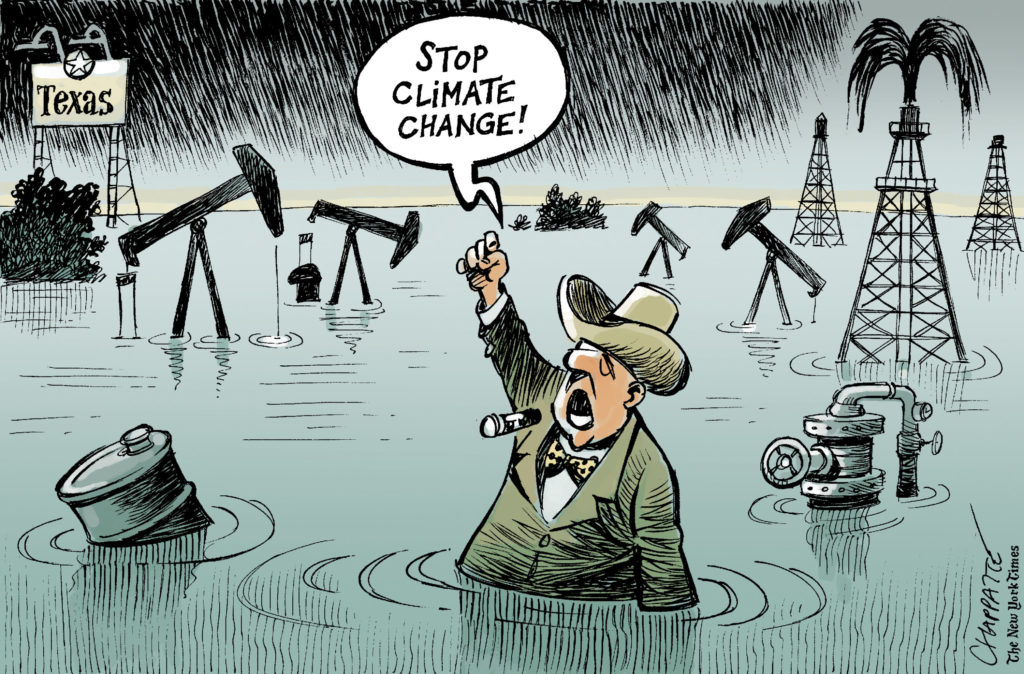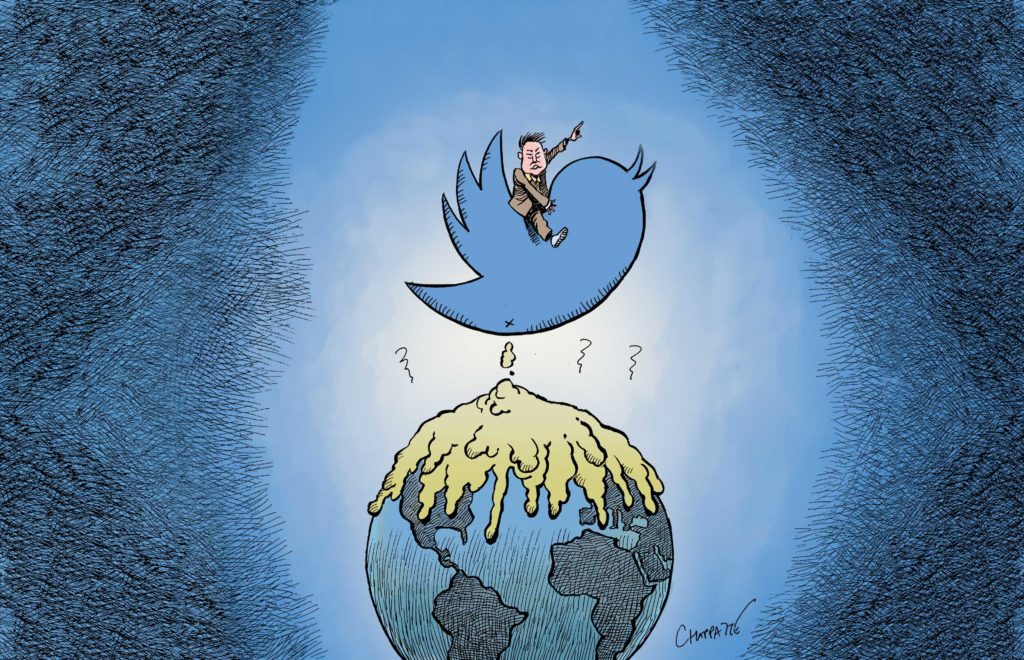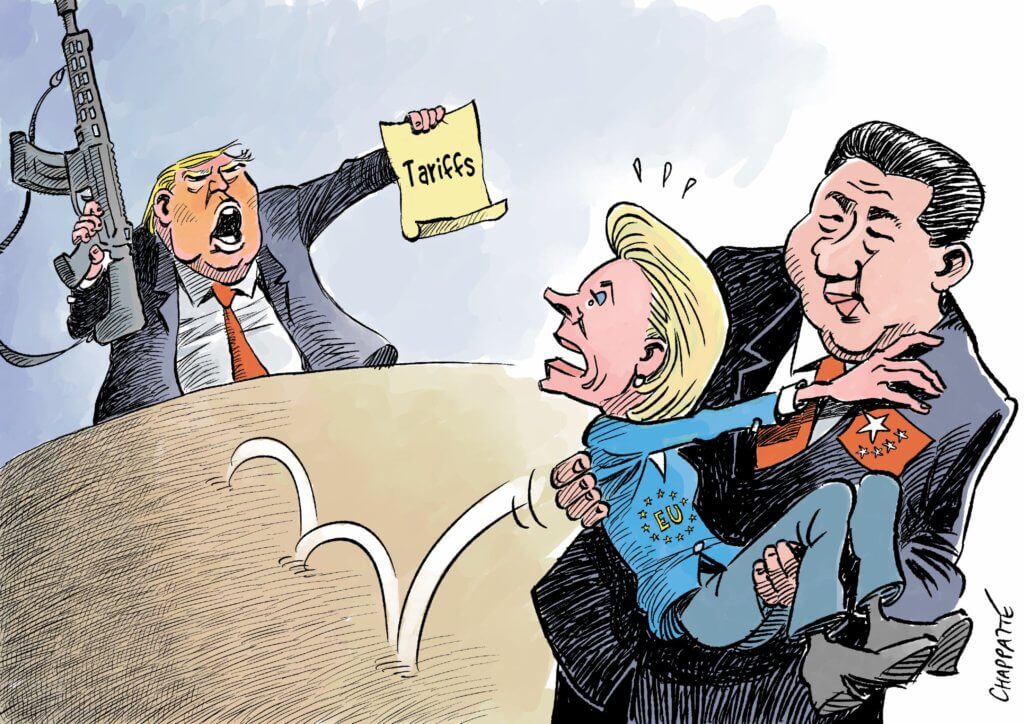After the outbreak of COVID-19 – a virus constituting a genuinely worldwide risk – fear internationalised in just a few weeks. As the COVID crisis has profoundly shaken societies on a global scale it has contributed to a reconfiguration – perhaps a multiplication – of risks and their perceptions. While foremost constituting a biological hazard, the pandemic has large repercussions on other types of risks, ranging from long-term economic and digital disruption to psychological distress and political confrontation. The nature and frontiers of risks are thus moving as the multilateral system, the most adequate framework to deal with global risks, is ailing and current risk mitigation strategies are increasingly put to question. The six articles of the present Dossier explore these changing hierarchies of risk and the underpinning structural issues that endanger our existence.
© Chappatte in The New York Times www.chappatte.com
The essays in this volume are the product of a new ‘research practicum‘ course in the Department of Political Science and International Relations at the Graduate Institute in Geneva. They build on the debates on ‘Urban Morphology and violence’ to reflect on the associations between cities – their political orders and disorders – and outcomes ranging from occupation and resistance to marginalisation and containment. These texts foreshadow the possibility of centring – and challenging – the urban in our understanding of contemporary conflict, violence and peace. They are a first step in opening up a research agenda for a more textured analysis of spatial, geographical and temporal dynamics within the city in relation to violence, and, therefore, the mobilisation of spatial, temporal and visual modes of analysis. The promise is to make visible the varied roles of urban morphologies – adding to the debate on cities in and as sites of conflict.
-
I
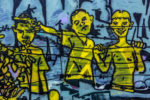
Centring the Urban in Our Understanding of Violence
Reading time: 4 min -
1

Italian Hospitality
Reading time: 6 min -
2

Hybrid Political Orders in Urban Settings
Reading time: 5 min -
3

Aerial Occupation and Aerial Forensics in Gaza
Reading time: 4 min -
4
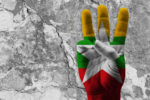
Naypyidaw, Myanmar: A Capital Devoid of Protests
Reading time: 4 min -
5

Planetary Conflict: Exploring the Urban Geography of Boko Haram
Reading time: 5 min -
6

Making Peace with Urban Political Settlements
Reading time: 5 min -
7

Informality as a Right to Necessity?
Reading time: 5 min -
8

Stagnation in the French Banlieues
Reading time: 5 min
The editors of this issue are grateful to Gopalan Balachandran, Christiana Parreira, Michelle Weitzel, and the editorial team at the Geneva Graduate Institute for comments on the essays.










